It’s no wonder that the small, edible seeds of the flax plant (which is one of the oldest crops in the world!) have gained superfood status: These tiny bundles of nutrients supply a wealth of health benefits. But to take full advantage of those perks, there’s a “right” way to eat them. Here’s everything you need to know about flaxseed. Flaxseed contains a plant-based type of omega-3 fatty acid called alpha-linolenic acid, or ALA, which has been tied to improved circulation and anti-inflammatory effects. Research shows that these fats may also help fight osteoporosis by reducing the risk of bone fractures, and offer modest protection against type 2 diabetes.
A two tablespoon portion of flaxseeds contains 6 grams of fiber (about a quarter of the recommended amount), 4-5 grams of plant protein, and 10% to 20% of the daily target for several nutrients, including magnesium, manganese, phosphorus, copper, and thiamin. Magnesium helps improve mood and sleep, while manganese plays a role in collagen production and promotes skin and bone health. Phosphorus helps form cell structures and supports bone health. Copper is involved with energy and collagen production, and is needed to make red blood cells, which carry oxygen throughout the body. Thiamin also plays a role in energy production, and helps support the nervous system as well. Flaxseed is a top source of particularly health-protective antioxidants called polyphenols. These antioxidants are thought to protect against heart disease and cancer, as well as cell-damaging oxidative stress—which means they may help fend off premature aging and neurodegenerative diseases (like Alzheimer’s and Parkinson’s) too. The good fats in flaxseed help reduce blood pressure, stave off artery hardening, lower “bad” LDL cholesterol, and prevent strokes.
One study in people with high cholesterol found that the consumption of three tablespoons of flaxseed powder daily for three months reduced “bad” LDL cholesterol by almost 20%, and lowered total cholesterol by more than 15%. Flaxseed contains both soluble fiber and insoluble fiber. Soluble fiber helps soften stool, so it can pass through the GI tracts and be eliminated more easily. Insoluble fiber helps stimulate the digestive system to move waste through the gut and promote bowel regularity. The two types of fiber work together to support digestive health. Flaxseed has been shown to prevent the development of tumors, particularly cancers of the breast, prostate, and colon. That may be because flax is rich in lignans. These plant compounds are thought to have antiangiogenic properties, which means they may they stop tumors from forming new blood vessels and growing. One study involving more than 6,000 women, found that those who regularly consumed flaxseed were 18% less likely to develop breast cancer. The lignans in flaxseed are also linked to improved levels of HA1C, a measure of average blood sugar over three months.
The seeds may also help curb diabetes risk in other ways, too. In one small study, scientists gave people 0g, 13g, or 26g of flaxseed daily for 12 weeks.The participants all had prediabetes, and included obese men and post-menopausal overweight women. The people in the group who consumed 13g of flaxseed a day had lower blood glucose and insulin levels, and improved insulin sensitivity at the end of the study period. One small study found that giving women flaxseed oil led to significant decreases in skin sensitivity, and reduced skin roughness, and scaling, all while improving skin hydration and smoothness. Most of the soluble fiber in flaxseeds is called mucilage. This fiber combines with water to form a gel-like consistency that slows the emptying of the stomach; that leads to increased feelings of fullness, and delays the return of hunger. A meta-analysis of 45 studies concluded that the consumption of flaxseed (particularly 30 grams a day, or about two tablespoons) resulted in reductions in both body weight and waist measurement.

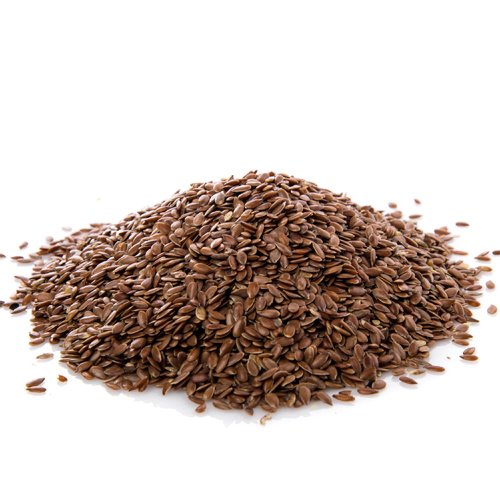
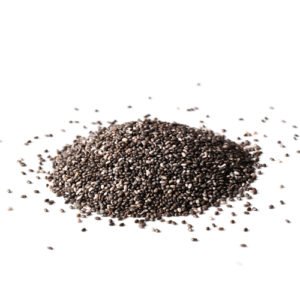

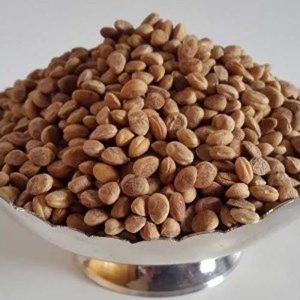
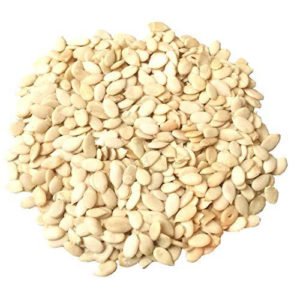
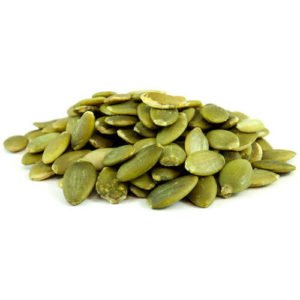
Reviews
There are no reviews yet.